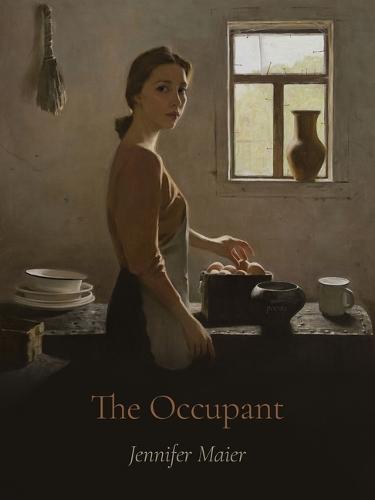Full Product Details
Author: Jennifer Maier
Publisher: University of Pittsburgh Press
Imprint: University of Pittsburgh Press
Weight: 0.454kg
ISBN: 9780822967392
ISBN 10: 0822967391
Pages: 80
Publication Date: 15 April 2025
Audience:
General/trade
,
General
Format: Paperback
Publisher's Status: Active
Availability: Available To Order

We have confirmation that this item is in stock with the supplier. It will be ordered in for you and dispatched immediately.
Reviews
Of a two-hundred-year-old scrap of wedding dress, Susan Howe writes, 'It says nothing at all to an outsider who can look at it without being seen.' What a gift, then, that the poet-speaker of The Occupant allows herself to be so deeply seen--seen into, seen through--by the quotidian beings and objects of her life. Inside these wise, porous, funny, wrenching poems, an intimate understanding pours from a hairbrush, an alarm clock, from dust bunnies and sunflowers, and a human heart is lit by their gaze. I want to call this book magical, and it is, but it's the magic of the everyday, of the aliveness and attention that flow into and through us when we can turn ourselves to meet them. Which, thankfully, Jennifer Maier does, finding over and over that the things of this world are telling us everything we most need to hear.--Kasey Jueds, author of The Thicket From the moment I began to read, these poems took my breath away--or quieted it, so I could hear the voices of the various objects that speak, as individual flowers do in Louise Gl�ck's The Wild Iris--a conch shell, a whisk, matches, lingerie. The Occupant's enchantment is also the reader's.--Sharon Bryan, author of Sharp Stars Jennifer Maier's new book, The Occupant, is her best yet. Of a one-hundred-year-old house both speaks in the third person and is spoken about by the objects of the house--a conch, a hairbrush, eyeglasses, a china cup and saucer, to name but a few. The conceit here gives full range to the lyric 'I' even as it suppresses that 'I.' We come to know just who the occupant is in these poems, a woman who is 'single and apart' and lives with the constellations of objects she has collected or inherited and carefully arranges so she might avoid, or at least push to the side, fears of mortality and too much self-revelation. We learn much of this information through the objects in the house, each of which has a singular perspective of the occupant. And this is what makes Maier's book so unique--these are not clever poems about these objects, but rather poems that allow household objects to reveal the occupant's character, raise essential questions about time and beauty and how 'we light' our lives to keep darkness at bay. This is a mature, intelligent, and technically deft book of poems. It is an absolute pleasure to read.--Robert Cording, author of Without My Asking
From the moment I began to read, these poems took my breath away--or quieted it, so I could hear the voices of the various objects that speak, as individual flowers do in Louise Gl�ck's The Wild Iris--a conch shell, a whisk, matches, lingerie. The Occupant's enchantment is also the reader's.--Sharon Bryan, author of Sharp Stars Jennifer Maier's new book, The Occupant, is her best yet. Of a one-hundred-year-old house both speaks in the third person and is spoken about by the objects of the house--a conch, a hairbrush, eyeglasses, a china cup and saucer, to name but a few. The conceit here gives full range to the lyric 'I' even as it suppresses that 'I.' We come to know just who the occupant is in these poems, a woman who is 'single and apart' and lives with the constellations of objects she has collected or inherited and carefully arranges so she might avoid, or at least push to the side, fears of mortality and too much self-revelation. We learn much of this information through the objects in the house, each of which has a singular perspective of the occupant. And this is what makes Maier's book so unique--these are not clever poems about these objects, but rather poems that allow household objects to reveal the occupant's character, raise essential questions about time and beauty and how 'we light' our lives to keep darkness at bay. This is a mature, intelligent, and technically deft book of poems. It is an absolute pleasure to read.--Robert Cording, author of Without My Asking
Author Information
Jennifer Maier is the author of Now, Now and Dark Alphabet, which was named one of Ten Remarkable Books of 2006 by the Academy of American Poets and was shortlisted for the 2008 Poets' Prize. Her poems have appeared in Poetry, Plume, Southern Humanities Review, Scientific American, The Gettysburg Review, American Poet, and elsewhere. She works as a professor of modern literature and poetics, writer in residence, and senior faculty in poetry in the MFA program at Seattle Pacific University.




